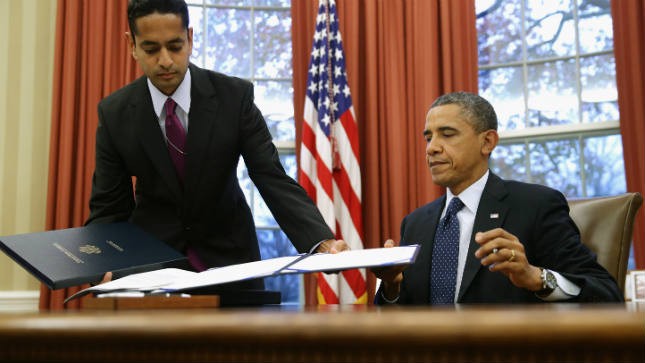The Senate on Wednesday passed an overhaul of the George W. Bush-era No Child Left Behind law, sending the measure to President Obama’s desk.
Senators approved the conference report worked out by House and Senate negotiators in a 85-12 vote — eight years after the original law expired. The House passed the legislation in an overwhelming vote last week.
Sen. Ted Cruz (R-Texas), another presidential candidate, missed the vote but made his opposition clear in a statement.
“In many ways, the conference report was worse than the original Senate bill — removing the few good provisions from the House bill that would have allowed some Title I portability for low-income students as well as a parental opt-out from onerous federal accountability standards,” he said in a statement ahead of the vote. “The American people expect the Republican majority to do better.”
Sen. Marco Rubio (R-Fla.), also missed the vote, while Sen. Lindsey Graham (R-S.C.) voted “yes.” Both are running for president.
Sen. Bernie Sanders (I-Vt.), who is challenging party front-runner Hillary Clinton for the Democratic presidential nomination, missed the vote.
Majority Leader Mitch McConnell (R-Ky.) suggested that passing the legislation after years of failing to agree to a deal is the latest example of how the upper chamber is “working” under a Republican majority.
“Finding a serious replacement for No Child Left Behind eluded Washington for years. Today it will become another bipartisan achievement for our country,” he said. “The new Congress and the new Senate have had a habit this year of turning third rails into bipartisan achievements.”
Sen. Lamar Alexander (R-Tenn.) aimed to pressure his Republican colleagues to back the legislation, saying earlier Wednesday that voting no “is saying ‘I like the national school board.'”
Minority Leader Harry Reid (D-Nev.) suggested that while the legislation is needed, Republicans were to blame for the years of inaction on No Child Left Behind.
“I know that some may think this is amusing but it’s not. It’s too serious,” he said. “When my Republican colleagues take victory laps on legislation they filibustered last Congress, that’s not a laughing matter.”
Despite the partisan bickering ahead of Wednesday’s vote, the rewrite brought together liberal Democrats such as Sen. Elizabeth Warren (Mass.) and stalwart Republicans such as Sen. John Cornyn (Texas).
The legislation will reduce the federal government’s oversight in the public school system by transferring more decision-making power back to state and local governments.
While the measure keeps annual reading and math testing requirements for grades three through eight, high school students would only have to undergo the testing once.
The legislation would prevent the federal government from requiring or incentivizing states to adopt any set of education standards such as Common Core, which has drawn strong pushback from Republican lawmakers and governors.
Alexander said that the legislation would help move away from a “national school board” and is the “single biggest step toward local control in 25 years.”
The legislation has also gained wide praise from dozens of outside groups. Civil rights advocates, however, have expressed concern that the states being able to opt out of No Child Left Behind could reduce resources for disadvantaged students.
Carmel Martin, the executive vice president for policy at the Center for American Progress, said that the legislation “strikes a balance between accountability for serving all students and closing achievement gaps with flexibility to allow state and local actors to meet local needs.”
